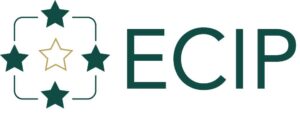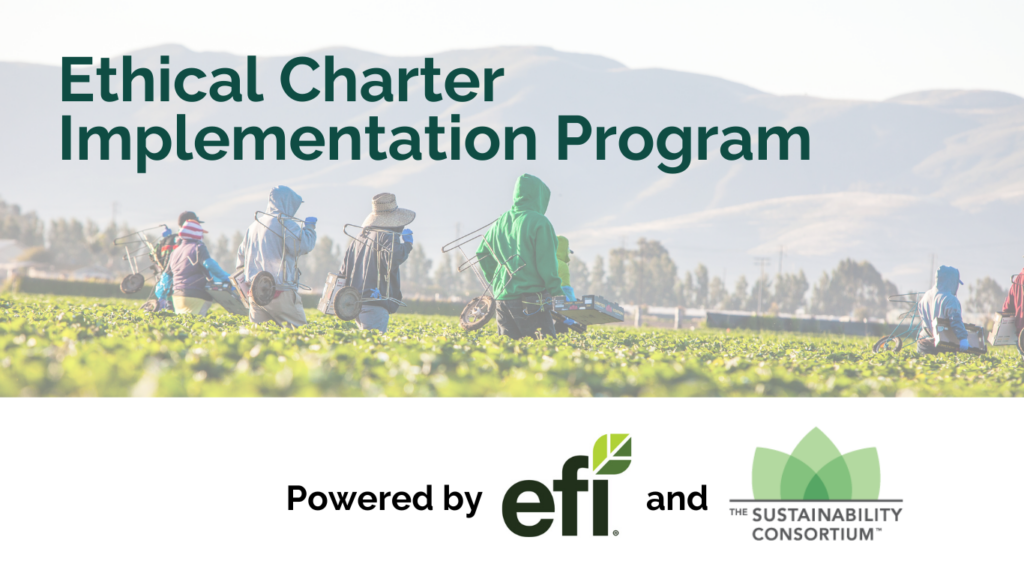Oct 2, 2023
Ethical Charter program recognizes industry labor practices
Fresh produce industry leaders have come together to design a program to recognize labor practices in the fresh produce industry.
The Ethical Charter Implementation Program (ECIP) recognizes and strengthens labor engagement without the burden of additional audits.
The program’s goals include:
- Creating alignment with the principles of the Ethical Charter on Responsible Labor Practices.
- Enabling operations that already align to the Ethical Charter to demonstrate their leadership.
- Providing capacity-building tools for continued engagement and improvement.
Launched with initial funding from the Walmart Foundation, the program is led by Equitable Food Initiative (EFI) and The Sustainability Consortium and overseen by an advisory group of leading buyers, suppliers and key stakeholders, including representatives from:
- AgSocio
- Bonduelle Fresh Americas
- Costco Wholesale
- Kroger
- McDonald’s USA
- Naturipe
- Sam’s Club
- Target
- Tanimura and Antle
- Taylor Farms
- Walmart

“When the Ethical Charter was launched in 2018, it reinforced the principle that all workers in fresh produce supply chains should be treated with dignity and respect. The Walmart Foundation is pleased to support this next phase of work around development of the Ethical Charter Implementation Program (ECIP) that helps strengthen the industry and protections for all those who work in and are dependent on it,” Gavin Bailey, senior manager, Walmart.org, said in a news release. “I’m encouraged by the collaboration among industry peers on leading this effort and encourage others to join our efforts.”
ECIP offers an assessment tool, resources and information that growers and suppliers can use to evaluate and strengthen their labor management systems. Beginning in November, participating buyers will invite their suppliers into ECIP, and suppliers will ask their growers to assess labor practices and management systems through an interactive online tool. Use of the online tool, called ECIP LAB, requires an annual subscription fee from buyers, suppliers and growers and provides guidance, resources and best practices as the operation assesses more than 50 different work areas, systems and policies. More information about the program can be found at ethicalcharterprogram.org.

“ECIP is a capacity-building tool rather than a compliance program,” Peter O’Driscoll, EFI’s executive director, said in the release. “The interactive system creates a safe space for growers and suppliers to review their current labor management systems, access information on best practices, and understand how they compare to the rest of the industry.”
“The Ethical Charter and this implementation program reflect the power of industry collaboration to advance meaningful changes for people and our planet,” Denise Osterhues, Kroger’s senior director of sustainability and social impact, said in the release. “We’re pleased to help scale this capacity-building work that prioritizes meeting growers where they are in their journey and offering practical resources and guidance to help enhance labor practices.”
The Ethical Charter provides an industry framework for accountability and transparency related to respect for laws at work, respect for professional conduct and respect for human rights in the production and purchase of fresh fruits, vegetables and flowers. It was adopted in 2018 by the Produce Marketing Association and the United Fresh Produce Association after a committee of suppliers and buyers defined the common baseline to ensure everyone in the industry is treated with dignity and respect.
“The Ethical Charter Implementation Program will give our supply chain the ability to showcase our alignment with the Ethical Charter principles and meet our customers’ expectations without undertaking the burden of audit or certification,” Wyatt Maysey, director of sustainability at Taylor Farms, said in the release. “Grower level audit requests would bring very difficult logistical challenges to our industry, so we felt this was a winning compromise to help further engage with our customers while alleviating further burden on growers.”






